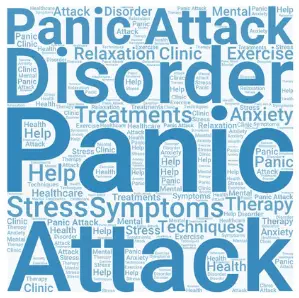Anxiety causes several physical symptoms, including high blood pressure. While anxiety doesn’t cause hypertension, the two conditions often occur together. If you suffer from anxiety attacks along with high blood pressure, it is vital to treat both conditions.

The difference between anxiety and high blood pressure
Anxiety is a normal emotion that everyone experiences occasionally. It’s usually related to stressors in your life, such as work or family obligations. When the anxiety level is high, you may feel tense, nervous, or on edge. But once the situation resolves, your anxiety usually goes away.
High blood pressure is a chronic condition that requires ongoing medical treatment. Left untreated, it leads to serious health complications, including heart disease and stroke.
How anxiety can cause high blood pressure
Dr. David Heffelfinger is an associate professor of physiology at the University of Colorado Denver School of Medicine. His research shows that anxiety can cause hypertension. While anxiety attacks doesn’t cause hypertension, the two conditions are often linked. Anxiety triggers the body’s natural “fight or flight” response. This response causes the heart to beat faster and the blood vessels to constrict. These changes often lead to a temporary increase in blood pressure.
Anxiety sufferers are more likely to have high blood pressure. That’s because chronic stress and anxiety can lead to long-term changes in your body. These increase your hypertension risk.
Treating anxiety and hypertension
If you experience high blood pressure and anxiety, it’s essential to seek treatment for both conditions. Treatment options for anxiety include counseling and medication. Hypertension treatment typically includes lifestyle changes and medication.
Diet Changes
Dietary changes can help lower your blood pressure and reduce anxiety. The Dietary Approaches to Stop Hypertension (DASH) diet is an excellent place to start. This eating plan includes plenty of fruits, vegetables, whole grains, and low-fat dairy. It’s also low in saturated fat, cholesterol, and salt.
Exercise
Exercise helps lower your blood pressure by strengthening your heart and improving circulation. It can also help reduce stress and anxiety. Regular exercise is also crucial for those who experience hypertension. Aim for at least 30 minutes of moderate-intensity aerobic activity most days of the week.
Medication
If lifestyle changes alone aren’t enough to lower your blood pressure, your doctor may prescribe medication. Several blood pressure medications include diuretics, beta-blockers, and ACE inhibitors.
Your doctor may also prescribe medication to help treat anxiety. The most common medicine used to treat anxiety is benzodiazepine. This class of drugs includes Xanax (alprazolam), Ativan (lorazepam), and Valium (diazepam).
Therapy
Therapy can effectively treat both anxiety and hypertension. With anxiety, cognitive-behavioral therapy (CBT) can be helpful. This therapy will help you identify the thinking patterns contributing to anxiety. Then you can work to change them.
Biofeedback therapy can be an effective treatment if you have high blood pressure. This therapy uses sensors to monitor your body’s physical response to stress. This information can then help you learn how to control blood pressure better.
Medication and therapy are often the most effective treatments for both ailments. If you have these conditions, work with your doctor to create a treatment plan that’s right for you.
Relaxation Techniques
Several relaxation techniques help reduce stress and anxiety. These techniques include deep breathing, meditation, and yoga. Regularly practicing relaxation techniques can help you control anxiety. It may also help lower your blood pressure.
Don’t struggle to control anxiety attacks or high blood pressure on your own. It’s important to seek professional help. Doctors and therapists can work with you to identify the root cause of your anxiety. Then they will develop a treatment plan to address both anxiety and high blood pressure. Don’t hesitate to reach out for help if you struggle to manage both conditions.
